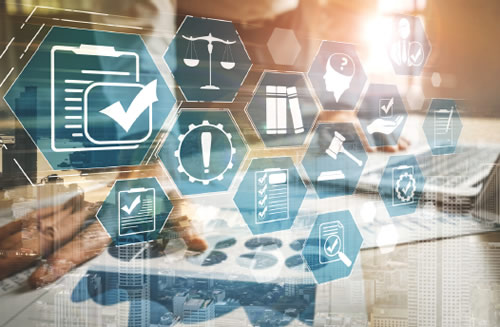
1. Local Governance:
The program aims to strengthen the capacity of local governments by focusing on effective policy-making, governance strategies, and leadership skills. Participants gain insights into innovative governance models, public administration, and community engagement.
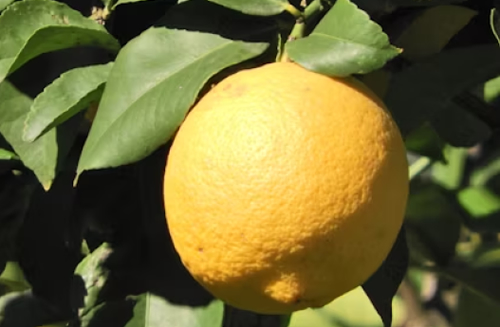
2. Local Product Development and Regional Regeneration (OCOP):
The program focuses on empowering communities to develop and promote local products that contribute to regional economic growth. Participants learn strategies for product development, marketing, and community-led initiatives to drive sustainable development.
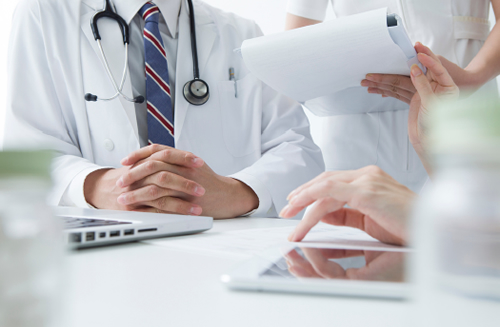
3. Hospital Management and Regional Health System Administration:
The program offers comprehensive training in hospital management, focusing on improving healthcare quality and operational efficiency. It addresses challenges in health system administration, resource allocation, and patient care, with an emphasis on adapting to the needs of regional health systems.

4. Educational Policies and Practices: Tokkatsu for Holistic Empowerment:
The program trains educators on holistic methods to empower students through non-academic activities. Participants explore ways to nurture social skills, leadership, and community involvement in education systems.
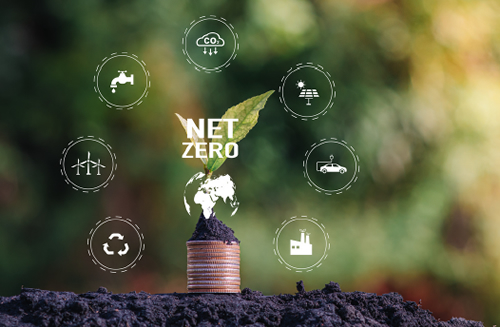
5. Carbon Neutrality:
The program offers insights into carbon reduction strategies, renewable energy integration, and sustainability initiatives. Participants are trained to develop policies and practices that contribute to achieving carbon neutrality in various sectors.
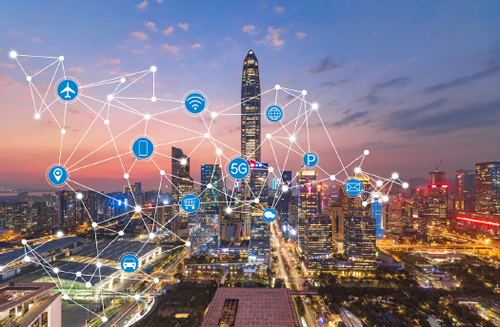
6. Smart City:
The program focuses on the development of smart cities, which emphasizes technology-driven solutions for urban development. The program explores innovations in urban infrastructure, energy management, and digital governance.
Model Schedule
1. Local Governance
| Day | Time | Content |
|---|---|---|
| Day1 | 9:00 – 9:30 | Opening Ceremony, Orientation |
| 9:30 – 12:30 | Lecture 1 Topic: Introduction to Local Governance in Japan (01) | |
| 13:30 – 16:30 | Lecture 2 Topic: Introduction to Local Governance in Japan (02) | |
| Day2 | 9:00 – 12:00 | Onsite learning: Hiroshima City Office Topic: “Holistic Waste Management System of Hiroshima City” with an Organized Discussion Session at the City Office |
| 13:00 – 16:00 | Onsite learning: History and Culture of HiroshimaTopic: Atomic bomb disaster at the World Heritage Site – “Peace Memorial Park” | |
| Day3 | 9:00 – 12:00 | Lecture 3 Case Study: The Development of Decentralized Renewable Energy Systems in Japan and the Central-Local Relationship |
| 13:00 – 16:00 | Lecture 4 Case Study: The Rural Re-development of Kamiyama-cho, Tokushima Prefecture – Participatory Governance, Public-Private Partnership, Digital Transformation and Globalization | |
| Day4 | 9:00 – 12:00 | Exchange activities with Town & Gown Office Topic 1: Innovation and Social Transformation Case(s) through Town & Gown Collaboration Topic 2: Organized Exchange Session with Higashi-Hiroshima City Office |
| 13:00 – 16:00 | Onsite learning: History and Culture of HiroshimaTopic: Regional development through traditional sake brewing – “Saijo Sake Town” | |
| Day5 | 9:00 – 12:00 | Lecture 5 Topic: Introduction of Evidence-based Policy Making (EBPM) (1) |
| 13:00 – 16:00 | Lecture 6 Topic: Introduction of Evidence-based Policy Making (EBPM) (2) | |
| Day6 | 9:00 – 17:00 | Onsite learning: Local Product Development and BrandingTopic: “Sixth Industry” in Osaki-Kamijima (lemon) |
| Discretionary or on-demand cultural and commercial activities | ||
| Day7 | 9:00 – 12:00 | Group Work Lessons for the future local governance in Viet Nam: Leadership, globalization, and digital transformation |
| 12:00 – 16:00 | Preparation for Group Reports (optional) | |
| Day8 | 9:00 – 12:00 | Group Reports and General Discussion |
| 16:00 – 16:30 | 16:00 – 16:30 Summary and Review, Closing Ceremony | |
2. Local Product Development and Regional Regeneration
| Day | Time | Content |
|---|---|---|
| Day1 | 9:00 – 9:30 | Opening Ceremony, Orientation |
| 9:30 – 12:30 | Lecture 1 Topic: An overview of the local/regional re-vitalization movement within the Japanese context: | |
| 13:30 – 16:30 | Lecture 2 Topic: Local and national policies fostering local/regional re-vitalization and product development | |
| Day2 | 9:00 – 10:30 | Site Visit 1: Hiroshima City Office Topic: The overall development and implementation of local re-vitalization initiatives in Hiroshima City. |
| 11:00 – 12:00 | Site Visit 2: Hiroshima Agricultural Cooperative (JA Hiroshima Chuo-kai) | |
| 14:00 -16:00 | Site Visit 3: Local product business in Hiroshima-style Okonomiyaki Topic: Local Food | |
| Day3 | 9:00 – 10:30 | Site Visit 4: Hiroshima Prefectural Technology Research Center |
| 13:00 – 14:30 | Lecture 3 Topic: Promotion and Marketing | |
| 14:30 – 16:30 | Site Visit 5: Roadside Station Sera and Sera Winery | |
| Day4 | 9:30 – 12:30 | Site visit 6: Local product business in Saijo Sake, Higashi-Hiroshima Topic: Japanese Sake Brewery |
| 13:00 – 15:30 | Site Visit 7: Private Industry Involvement in Local Product Development and Regional Re-Vitalization | |
| Day5 | 9:30 – 12:00 | Site Visit 8: Agricultural business development with local stakeholders and external supporters |
| 14:00 – 16:30 | Lecture 4 Topic: Quality assurance and policy incentives in developing local products | |
| Day6 | 9:30 – 10:30 | Site Visit 9: Hiroshima City Industrial Promotion Center |
| 13:00 – 16:00 | Site Visit 10: Local Traditional Craft Business in Hiroshima | |
| Day7 | All day | Site Visit 11: Local product business in Hiroshima Citrus Fruits |
| Day8 | 9:00 – 11:30 | Lecture 5 Topic: Training and Capacity Building for the business and individuals involved |
| 13:00 – 16:00 | Lecture 6 Topic: Explore the integration of tourism development as a core local product, and/or “area branding”, interconnected with the promotion of other regional offerings. | |
| 16:00 – 17:00 | Summary and Review, Closing Ceremony |
3. Hospital Management and Regional Health System Administration
| Day | Time | Content |
|---|---|---|
| Day1 | 10:00 – 10:30 | Opening Ceremony, Orientation |
| 10:30 – 12:30 | Lecture 1 Topic: Governance and Strategic Planning | |
| 15:00 – 17:30 | Lecture 2 Topic: Financial Management and Procurement | |
| Day2 | 10:30 – 10:30 | Lecture 3 Topic: Regional Healthcare System and Governance |
| 14:30 – 17:00 | Lecture 4 Topic: Human Resource Management and Education | |
| Day3 | 10:00 – 12:30 | Lecture 5 Topic: Quality, risk, safety, and recent issues related to infectious diseases |
| 13:00 – 14:30 | Lecture 6 Topic: Health Information Technology and Administration | |
| Day4 | 13:30 – 16:00 | Site visit 1: Hiroshima University Hospital Topic: Operations and Training in Surgical Departments |
| Day5 | 9:00 – 11:30 | Site visit 2: Hiroshima University Hospital Topic: Operations and Training in Internal Medicine Departments |
| 13:30 – 16:00 | Site visit 3: Hiroshima University Hospital Topic: Professional Training System and Healthcare Technology Development | |
| Day6 | 9:00 – 11:30 | Site visit 4: Hiroshima University Hospital Topic: Hospital Management and Process Optimization |
| 13:00 – 16:00 | Site visit 5: Kasumi Clinic Topic: Regional Collaborative Healthcare System | |
| Day7 | 9:00-11:30 | Site visit 6: Medical Corporation JR Hiroshima Hospital (as an example of a private large-scale general hospital) Topic: Governance and Strategic Planning (1) |
| 13:30-16:00 | Site visit 7: Hiroshima Prefectural Hospital Topic: Governance and Strategic Planning (2) | |
| Day8 | 9:00 – 11:30 | Workshop Topic: Healthcare Leadership and Future-oriented Strategic Thinking |
| 13:00 – 16:00 | Lecture 6 Topic: Explore the integration of tourism development as a core local product, and/or “area branding”, interconnected with the promotion of other regional offerings. | |
| 11:30 – 14:00 | Summary and Review, Closing Ceremony |
4. Educational Policies and Practices: Tokkatsu for Holistic Empowerment
| DAY 1 (Sat) | Arrival at Hiroshima Airport |
| DAY 2 (Sun) | Cultural learning experiences (Miyajima, Peace Memorial Park) |
| DAY 3 (Mon) | Orientation of the program Lectures (2 units, 6 hours in total) ● The general educational policy and curriculum in Japan ● Tokkatsu in primary and secondary education, and its social impacts (e.g., discipline under disaster): Some cases in Hiroshima Welcome Dinner |
| DAY 4 (Tue) | Lecture (1 unit, 3 hours) ● Advantages of the primary education policies/practices in Hiroshima: “Discipline in Learning” and “Nurturing as a Citizen” ● Observation of Tokkatsu activities in affiliated schools of Hiroshima University and/or other schools in surrounding municipalities; Discussion session with teachers in those schools (e.g., long-term impact analysis of Tokkatsu, its relationship with the ordinary curriculum, and its evaluation) |
| DAY 5 (Wed) | Lecture (1 unit, 3 hours) ● The teacher development system and the curriculum development in Japan/Hiroshima Site visit (approx. 3 hours) ● Hiroshima Prefectural Board of Education, Municipal Board of Education (Hiroshima City or Higashi-Hiroshima City) ● Some presentations about prefectural/municipal education policies, policy evaluation, the central-local governmental relationship ● Discussion session with local government officials |
| DAY 6 (Thu) | Lecture (1 unit, 3 hours) ● Recent policy reforms in Japan: GIGA school, Inquiry-based Learning, Connection between primary, secondary and tertiary education Site visit (approx. 3 hours) ● Education in Higashi-Hiroshima Smart City (e.g., Community-based online learning with regional collaboration in social studies class) |
| DAY 7 (Fri) | Cultural learning experiences (Visit to Sake Brewing Industry in Higashi-Hiroshima) Exchange with Town & Gown Office of Higashi-Hiroshima |
| DAY 8 (Sat) | Morning: Group work to summarize lessons learned |
| DAY 9 (Sun) | Visit to the community-based commercial facilities |
| DAY 10 (Mon) | Morning: Group Reporting Session and Wrapping-up Afternoon: Closing Ceremony and Farewell Dinner |
| DAY 11 (Tue) | Departure from Hiroshima |
5. Carbon Neutrality
| DAY 1 (Sat) | |
| PM | Anival at Hiroshima City |
| DAY 2 (Sun) | |
| AM & PM | Cultural Experience and Leaning Tour (Itsukushirna Shrine and Hiroshima Peace Memorial Park as UNESCO World Heritages, and the surrounding areas) |
| DAY3 (Mon) at Senda Lab (Higashi-Senda Campus), Hiroshima University | |
| 9:00-9:30 | Program Introduction |
| 9:30-12:30 | Lecture1 : Cutting-edge policies/technologies of carbon neutrnlity (Lecturer from the TGO undergrad course on carbon neutrality) Including a short break and discussion |
| 12:30-13:30 | Lunch |
| 13:30-16:30 | Lecture2 : Regional city’s innovations and challenges on carbon neutrality Offered by Mr. Shin-ichi Kurisu, Management Strategy Director of the city Including a short break and discussion |
| 18:00-20:00 | Wekome Dinner (e.g., Hotel Hilton Hiroshima) |
| DAY 4 (Tue) Site Visit 1 in Hiroshima | |
| AM & PM | Carbon neutraJity in retail business ● Short lecture at the head office of IZUMI ● Visit to Yume Town Hatsukaichi |
| Late PM | Carbon neutrality in tourism |
| ● Smart island and green slow mobility at Ninoshima (Fukken Co., Ltd.) ● B1ue Carbon Project in Hiroshima Bay (Fukken Co., Ltd.) | |
| DAY 5 (Wed) Site Visit 2 in Osaki-Kamijima | |
| AM & PM | Carbon neutrality in energy sector ● The Chugoku Electric Power Co., Inc.: Osaki CoolGen Corporation (Oxygen blown IGCC technology & carbon dioxide capture technology ) https://www.japanccs.com/wp/wp-content/uploads/2021/10/Part-1-Speaker-5_Osaki-coolGen-corporation_Nobuhiro-Misawa.pdf ● NEDO:R & D and Demonstration Base for Carbon Recycling at Osaki-Kamijima |
| DAY 6 (Thu) Site Visit in Higashi Hiroshima | |
| AM | Carbon neutrality in agriculture ● HU Saijo Station (Research Farm) ● Digital Twin Farm (Prof. Shimada & Prof. Sugino) ● Prof. Taketo Obitsu on the reduction of methane emissions from lactating cows ● Branding of cows with lower methane emissions (Sumitomo Corp., Agri Innovation Dept) |
| PM 1 | Innovations in carbon neutrality ● Fujita’s “Phosphate Removal with Iron mixed Eco-Carbon” ● Sustinable cycle for carbon capture and storage and phosphorus recycling ● Wood-fueled biomass power plant & agriculture |
| PM 2 | Carbon neutrality in Hiroshima University ● Renewable energy sources on campus ● ZEBs (Net Zero Energy Building) ● EV car sharing service on campus ● Town & Gown framework for smart city development |
| DAY 7 (Fri) at Mirai Crea (Higashi-Hiroshima Campus), Hiroshima University | |
| AM | Cultural Experience and Learning Tour (Saijo Sake Brewery Street) |
| PM | Leaders Dialogue and Exchange (with university executives and business leaders) |
| DAY 8 (Sat) at Senda Lab (Higashi-Senda Campus), Hiroshima University | |
| 9:00-12:00 | Debriefing Workshop ● Comparison with participant’s country ● Generalizability and uniqueness of lessons learned |
| 12:00-13:00 | Lunch |
| 13:00-14:30 | Final presentation by participants about their lessons learned |
| 14:30-15:30 | Closing Ceremony |
| 17:30-19:30 | Farewell Dinner |
| DAY 9 (Sun) | |
| Leave Hiroshima | |
6. Smart City
| DAY 1 (Sat) | |
| PM | Arrival at Hiroshima City |
| DAY 2 (Sun) | |
| AM & PM | Cultural Experience and Learning Tour (Itsukushima Shrine and Hiroshima Peace Memorial Park as UNESCO World Heritages, and the surrounding areas) |
| DAY 3 (Mon) at Senda Lab (Higashi-Senda Campus), Hiroshima University | |
| 9:00-9:30 | Program Introduction |
| 9:30-12:30 | Lecture 1: Cutting-edge policies/technologies and emerging issues of smart cities Offered by Mr. Jun-ya Ishii, Senior Analyst at Sumitomo Corporation Global Research Co. Ltd. Including a short break and discussion |
| 12:30-13:30 | Lunch |
| 13:30-16:30 | Lecture 2: Smart city development at Higashi-Hiroshima Offered by Mr. Shin-ichi Kurisu, Management Strategy Director of the city Including a short break and discussion |
| 18:00-20:00 | Welcome Dinner (e.g., Hotel Hilton Hiroshima) |
| DAY 4 (Tue) Site Visit 1 in Hiroshima | |
| AM & PM | Smart Transportation in Hiroshima ● Development of Multimodal Transportation in Hiroshima (train-tram-bus-car/motorcycle-bicycle-pedestrain-water (ferry & boat)) |
| ● Urban Reform and TOD (Transport Oriented Development): Case of Hiroshima Station Redevelopment ● Emerging Smart Transportation Systems for Social Transformation: MaaS, autodrive, sustainable transportation (e.g., slow mobility) | |
| DAY 5 (Wed) Site Visit 2 in Hiroshima | |
| AM | Smart Lifestyle in Hiroshima (1) ● Hiroshima City Naka Waste Incineration Plant (Designed by Yoshio Taniguchi, a globally renowned Japanese architect) ● Get the holistic understanding of waste management in Japan (especially, how this clean and smart urban space is maintained) |
| PM | Smart Lifestyle in Hiroshima (2) ● Modern environment-friendly shopping mall: Yume town Hatsuka-ichi by IZUMI Co., Ltd. |
| DAY 6 (Thu) Site Visit in Higashi Hiroshima | |
| AM | Smart Energy in Hiroshima ● Hiroshima Central Eco Park by Nippon Steel Engineering ● Local energy production and consumption model OR, Smart Fab in Hiroshima ● Smart fabrication in semiconductor industry ● Green fabrication and carbon neutrality (Prof. Akinobu Teramoto of Hu) |
| PM | Smart Campus of Hiroshima University ● Renewable energy sources on campus ● ZEBs (Net Zero Energy Building) ● EV car sharing service on campus ● Town & Gown framework for city development |
| DAY 7 (Fri)at Mirai Crea (Higashi-Hiroshima Campus), Hiroshima University | |
| AM | Cultural Experience and Learning Tour (Saijo Sake Brewery Street) |
| PM | Leaders Dialogue and Exchange (with university executives and business leaders) |
| DAY 8 (Sat) at Senda Lab (Higashi-Senda Campus), Hiroshima University | |
| 9:00-12:00 | Debriefing Workshop ● Comparison with participant’s country ● Generalizability and uniqueness of lessons learned |
| 12:00-13:00 | Lunch |
| 13:00-14:30 | Final presentation by participants about their lessons learned |
| 24:30-15:30 | Closing Ceremony |
| 17:30-19:30 | Farewell Dinner |
| DAY 9 (Sun) | |
| Leave Hiroshima | |